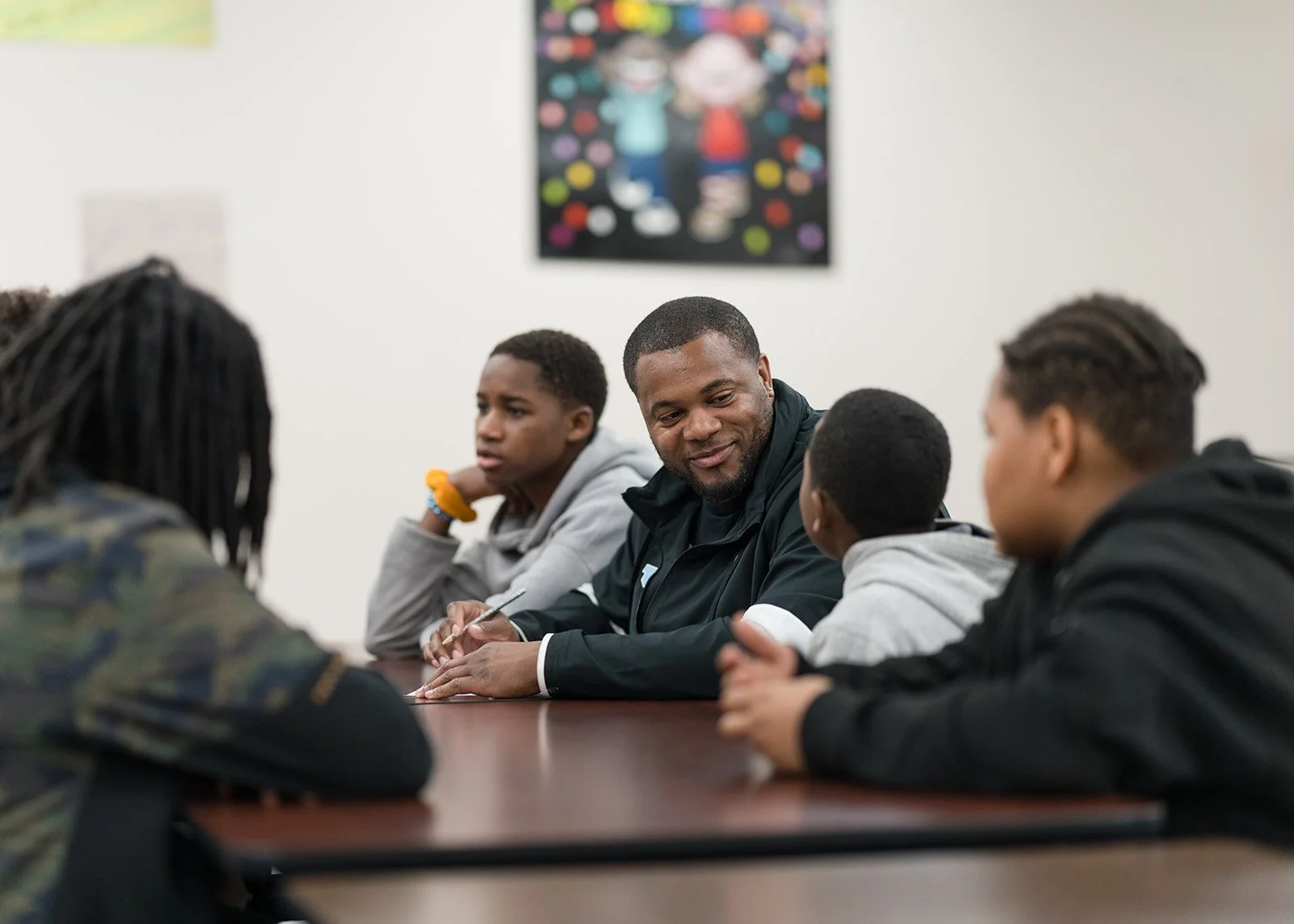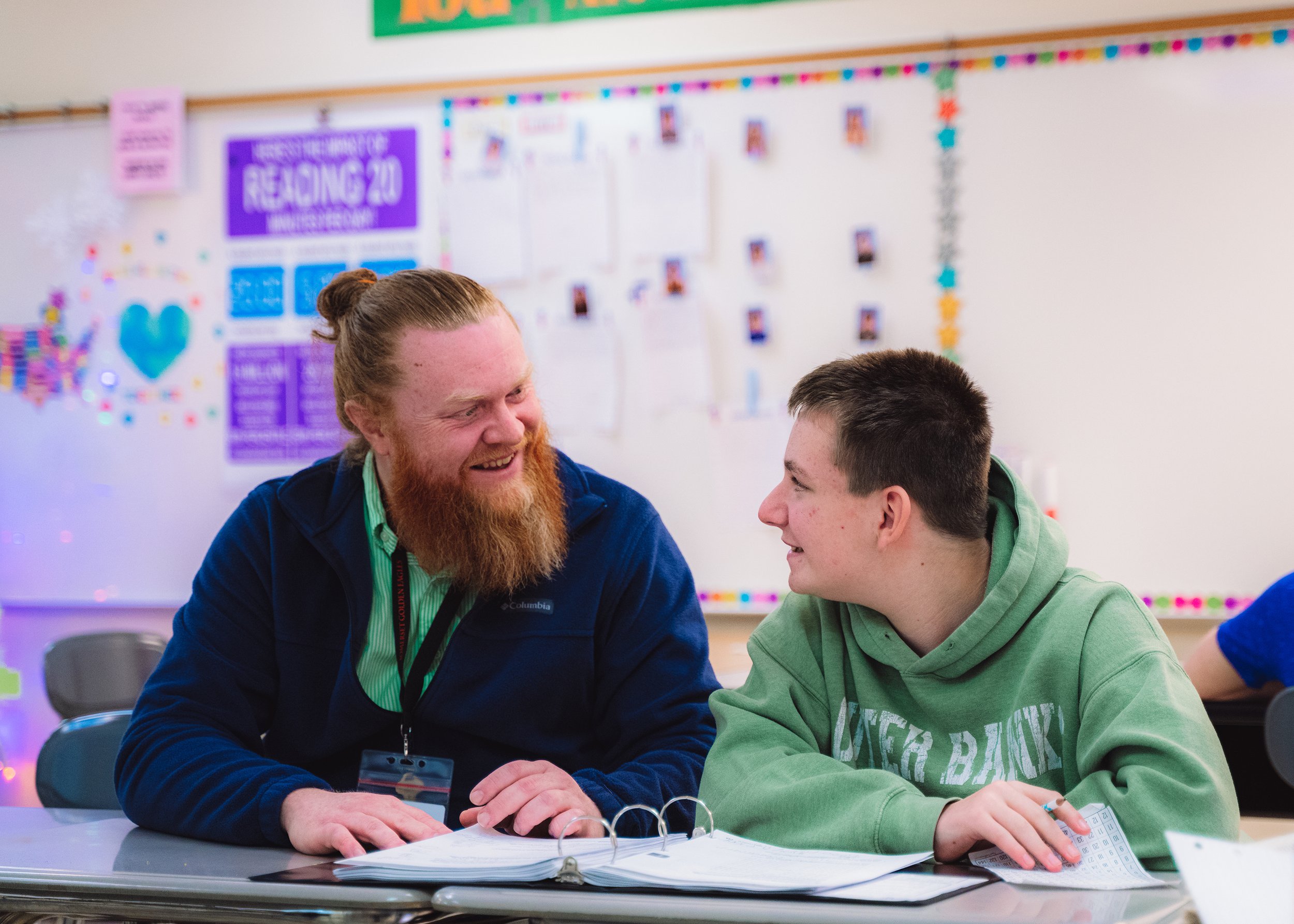CISPA Professional Development Training Opportunities
Communities in Schools of Pennsylvania recognizes the critical role that those who work with youth play in creating a supportive and inclusive learning environment. Our professional development training opportunities aim to equip you with the knowledge, tools, and strategies necessary to address the diverse needs of students effectively.
Our training programs are facilitated by CISPA’s Director of Learning & Innovation, Leyna Rozon, who was trained by the National Council for Mental Wellbeing and has extensive experience working with young people. Leyna provides a supportive and inclusive learning environment that encourages participants to ask questions, share their experiences, and learn from one another.
We are available to provide customized training sessions both in person and virtually for organizations and groups. For more information and to schedule a training session, email Leyna Rozon at leyna@cisofpa.org.
Building Trauma-Sensitive Schools
This training introduces all school and district staff to the concept of trauma-sensitive schools and includes examples of trauma-sensitive practices across six domains:
Support staff development
Create a safe and supportive environment
Assess needs and provide support
Build social and emotional skills
Collaborate with students and families
Adapt policies and procedures.
It is recommended that this course is an in-person, group-based training. The training can be delivered all at once or broken down into shorter segments. Each segment includes handouts to support discussion about trauma sensitivity and the application of concepts.
Time: 4.5 hours (can be broken down into 2 days)
Maximum Number of Participants: 30
Trauma 101
Trauma 101 will provide participants with an overview of trauma, particularly in children. The course will review chronic and complex trauma, and identify various types of traumatic experiences and trauma’s impact on social, biological, psychological, and cognitive functioning and development. This course will also review common mental health diagnoses related to trauma in order to help participants understand trauma’s impact on the brain.
Learning Objectives:
Participants will be able to recognize the importance of trauma-informed practices.
Participants will be able to understand the term child traumatic stress and know what types of experiences constitute childhood trauma.
Participants will be able to understand the relationship between a child’s lifetime trauma history and his or her behaviors and responses.
Participants will be able to understand how traumatic experiences affect brain development, memory, and child development.
Participants will be able to understand the importance of collaboration with trauma-informed agencies.
Time: 2 hours
Maximum Number of Participants: 30
School Climate and Culture
A positive school climate is critically related to school success. This training will teach participants what is school climate and culture, gain a better understanding of the importance of a positive school climate, learn how to engage school leadership and other stakeholders in its improvement, and will provide suggestions for leading an effective school climate improvement effort.
Time: 3 hours
Maximum Number of Participants: 30
Youth Mental Health First Aid
Youth Mental Health First Aid Training program equips participants with the skills and knowledge to recognize, identify, understand, and respond to signs and symptoms of common mental health challenges that youth may face, such as depression, anxiety, and substance use disorder. Participants will learn how to initiate conversations with youth about mental health, provide initial support, and guide young people to appropriate professional help if necessary. By taking this course, you will be better equipped to support the young people in your life and create a community where mental health is prioritized and destigmatized.
Time: 6.5 hours
Maximum Number of Participants: 25






